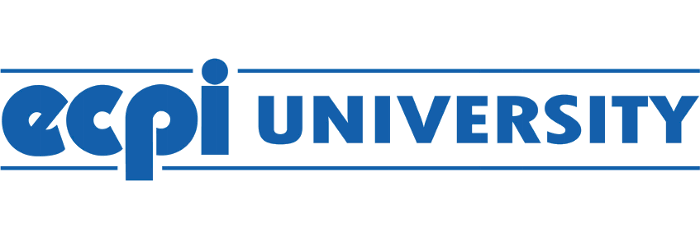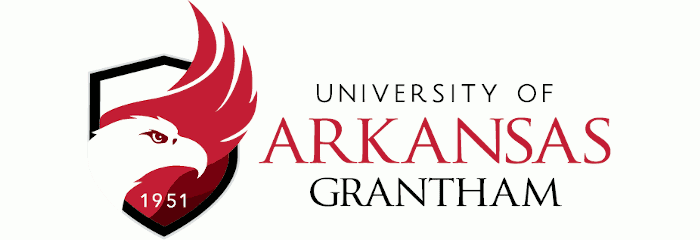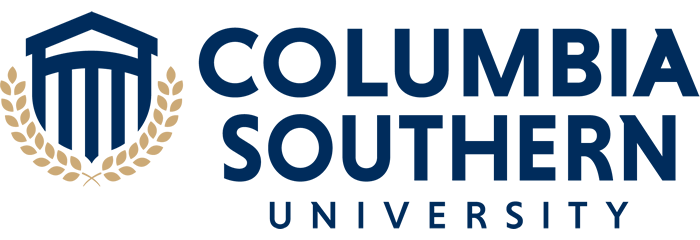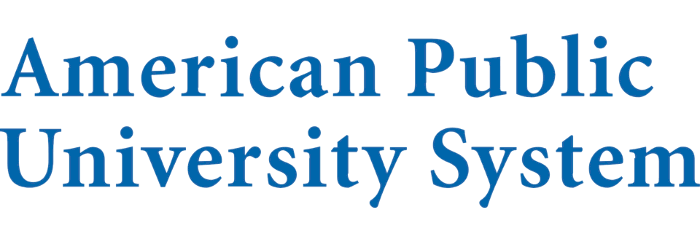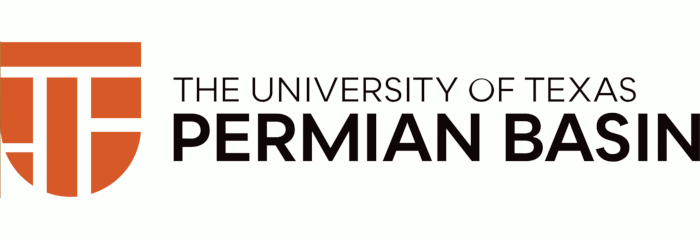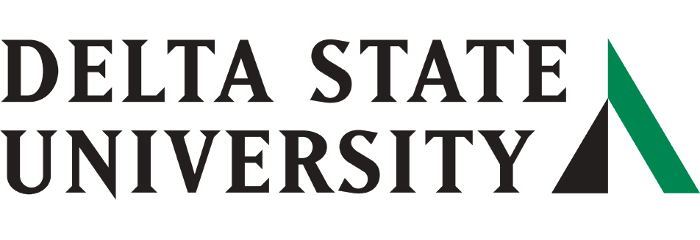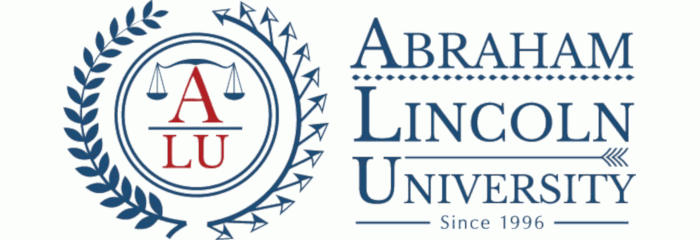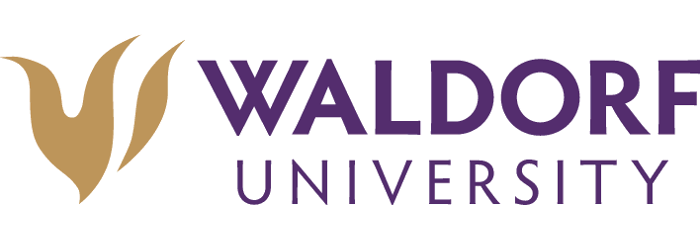Affordable Accredited Online Colleges
The cost of earning a college degree is often significant and this can deter students from pursuing higher education. This is why we've compiled a list of the most affordable online colleges. All of the schools on our list have annual tuition rates of $10,000 or less while offering a high-quality distance education. We've also included a recommendation rate based on real feedback from former students through our partner site GradReports.com, the largest database of independent online college reviews.
Our list of schools might be a helpful starting point for students searching for affordable online degree programs. Following the list, we've provided additional information about accreditation, the cost of an online degree, and financial aid options. We also offer some tips on determining the true value of earning a college degree.
| Full List | Accreditation | Annual Tuition | Recommend Rate |
|---|---|---|---|
| Full List (37) | |||
| Aspen University | DEAC | $3,920 | Aspen University. ">80% (198 reviews) |
| Spokane Community College | NWCCU | $4,881 | Add Review |
| Shiloh University | DEAC | $5,250 | Add Review |
| California Coast University | DEAC | $5,355 | California Coast University. ">92% (63 reviews) |
| Lone Star College System | SACS COC | $5,564 | Add Review |
| United States University | WSCUC | $6,480 | Add Review |
| Columbia Southern University | DEAC | $6,600 | Columbia Southern University. ">78% (189 reviews) |
| Western Governors University | NWCCU | $6,670 | Western Governors University. ">71% (737 reviews) |
| Kansas Christian College | ABHE | $7,270 | Kansas Christian College. ">100% (1 reviews) |
| American Public University System | HLC | $7,324 | American Public University System. ">70% (181 reviews) |
| University of North Carolina at Pembroke | SACS COC | $7,490 | University of North Carolina at Pembroke. ">0% (1 reviews) |
| The University of Texas Permian Basin | SACS COC | $7,506 | The University of Texas Permian Basin. ">67% (3 reviews) |
| Minot State University | HLC | $7,592 | Add Review |
| Delta State University | SACS COC | $7,671 | Delta State University. ">0% (2 reviews) |
| Abraham Lincoln University | DEAC | $7,758 | Abraham Lincoln University. ">71% (7 reviews) |
| Bellevue University | HLC | $7,851 | Bellevue University. ">68% (69 reviews) |
| Iowa Central Community College | HLC | $8,200 | Iowa Central Community College. ">60% (5 reviews) |
| American National University | ABHES | $8,244 | American National University. ">17% (6 reviews) |
| Western Carolina University | SACS COC | $8,277 | Western Carolina University. ">100% (3 reviews) |
| University of Arkansas Grantham | DEAC | $8,280 | University of Arkansas Grantham. ">56% (96 reviews) |
| Midwestern Baptist Theological Seminary | HLC | $8,290 | Add Review |
| Cincinnati State Technical and Community College | HLC | $8,379 | Add Review |
| Colorado State University Global | HLC | $8,400 | Colorado State University Global. ">55% (112 reviews) |
| Eastern New Mexico University - Main Campus | HLC | $8,448 | Eastern New Mexico University - Main Campus. ">100% (4 reviews) |
| Waldorf University | HLC | $8,700 | Waldorf University. ">100% (16 reviews) |
| Nicholls State University | SACS COC | $8,991 | Add Review |
| Trident at AIU | WSCUC | $9,240 | Trident at AIU. ">76% (91 reviews) |
| Jackson State University | SACS COC | $9,445 | Add Review |
| West Texas A&M University | SACS COC | $9,541 | Add Review |
| University of Phoenix | HLC | $9,552 | University of Phoenix. ">60% (1147 reviews) |
| Trine University Online | HLC | $9,576 | Add Review |
| Southern New Hampshire University Online | NECHE | $9,600 | Southern New Hampshire University Online. ">63% (441 reviews) |
| Youngstown State University | HLC | $9,639 | Youngstown State University. ">0% (2 reviews) |
| Thomas Edison State University | MSCHE | $9,856 | Thomas Edison State University. ">58% (74 reviews) |
| University of the Cumberlands | SACS COC | $9,875 | University of the Cumberlands. ">100% (4 reviews) |
| Baker College Online | HLC | $9,920 | Baker College Online. ">59% (94 reviews) |
| Florida State College at Jacksonville | SACS COC | $9,992 | Florida State College at Jacksonville. ">29% (14 reviews) |
Highlights of Online Schools with Low Tuition
University of Arkansas Grantham
Grantham University offers more than 60 accredited, fully online programs. Students can choose from associate, bachelor’s, and master’s degrees in fields such as humanities, business and marketing, information systems, and nursing. Several features make Grantham’s distance education convenient for adult learners. Eight-week classes start monthly for added flexibility, and the 11 certificate programs are designed to take less than a year to complete (along with two-year associate and master’s degree options). A generous credit transfer system accounts for previous education and work experience, and Career Services and a Veteran Support Team provide tailored help for students. Tuition is $295 per credit hour for undergraduates and $350 per credit hour for master’s students. These low rates and a flat resource fee keep costs predictable. One Grantham program even ranked in our 2020 Most Affordable Online Associate Paralegal Degrees list. Students can also apply for financial aid, scholarships, or one of the Heroes Programs, which offer discounts for active-duty and retired service members, first responders, civil servants, and certified patient care workers (along with their spouses)
Columbia Southern University
Columbia Southern University (CSU) is an online university offering associate degrees, bachelor's degrees, master's degrees, and certificates in a wide variety of areas, such as criminal justice, business administration, fire administration, health care administration, and many more. It also offers one doctoral program in business administration. The degree programs are offered through CSU's four academic departments, the College of Arts & Sciences, the College of Business, the College of Safety & Emergency Services, and the Department for Continuing Education. Students can opt to take classes on a term-based schedule with semesters starting in fall, winter, spring, and summer. Alternatively, students who need extra scheduling flexibility can take advantage of CSU's LifePace Learning® option, which allows students to complete a course in as few as four weeks or as many as 18 weeks at their own pace. Tuition depends on the degree level and is the same across the colleges and the various specializations. Undergraduate programs cost $225 per credit hour, while graduate programs cost $300 per credit hour. Tuition for doctoral courses is $375 per credit hour.
Western Governors University
Western Governors University (WGU) is an online university offering various bachelor's and master's degree programs. The programs are divided between four colleges, each pertaining to a different field of study: the College of Health Professions, the College of Information Technology, the Teachers College, and the College of Business. WGU offers enrollment all year round and degree programs start on the first of every month, making it easy for students to apply and enroll when it’s convenient for them. Unlike most universities, WGU charges tuition per term, not per credit hour. Each term is six months long, and students can complete as many courses as they want within that period without additional charges. Because of this, students are also able to complete their degrees at an accelerated rate without incurring extra costs. Tuition for one term starts at $3,190, but this can vary between colleges, programs, and degree levels.
American Public University System
With hundreds of affordable online programs across all levels, American Public University System aims to prepare the U.S. military community for careers in and out of service. The system’s two components offer a range of options: American Military University has programs relating to national security, intelligence, and cybersecurity, and American Public University hosts degrees in English and humanities, secondary and early childhood education, applied sciences, health and nursing, and information technology. American Public University System’s associate and bachelor’s degree paths both ranked on our best lists for 2021, indicating a high return on investment. An important component of this is affordable tuition ($285 per credit hour for undergraduate courses and $370 per credit hour for graduate courses). In addition, the Freedom Grant provides a cap of $250 per credit hour for active-duty military and their spouses, National Guard members, and Reservists, plus fully waived technology fees. Because the American Public University System is fully accredited, students can apply for federal financial aid.
Minot State University
By offering a number of regionally accredited associate, bachelor’s, and master’s degree programs online, Minot State University creates flexible distance learning experiences. Online students can expect a mix of synchronous and asynchronous courses depending on their program, with start dates following the traditional semester schedule of Minot’s North Dakota campus. Because programs track to this schedule, bachelor’s degrees are designed for completion in four years (120–122 credit hours), with an average of two years for master’s degrees. Minot gives particular focus to educating professionals who serve people with disabilities. They offer a certificate and degrees at all levels in Human Services (with concentrations in intellectual and developmental disabilities), two certificates and a Master of Science in Special Education, and a Bachelor of Applied Science in Interpreting and Sign Language Studies. The university also participates in the Air University Associate to Baccalaureate Cooperative (AU-ABC) to offer a limited number of fully online bachelor’s degrees to members of the Air Force and North Dakota Air National Guard.
The University of Texas Permian Basin
Students can choose from two dozen accredited online bachelor’s and master’s programs at the University of Texas of the Permian Basin. Options for undergraduate degrees include a Bachelor of Arts in Humanities (with concentrations in art, English, history, and more), a Bachelor of Science in Criminal Justice, and an RN to BSN to help registered nurses advance their careers. Graduate students have a number of choices, including several master’s degrees focusing on education: two in special education (one with a concentration on students with autism), one in bilingual/ESL education, and one in educational leadership (plus two graduate certificates for school administrators). Online programs are designed for the needs of adult learners, with eight-week courses starting on six dates during the year, pay-as-you go tuition, and up to 90 previous credits transferable toward a 120-hour bachelor’s degree. Depending on the student’s schedule, they can complete some master’s degrees in as little as 12 months. Given the relatively low tuition and high alumni salaries, University of Texas of the Permian Basin ranked on our 2021 Best Online Bachelor’s Degrees list.
Delta State University
Delta State University offers accredited distance education with a focus on graduate study. Undergraduates have a few fully online options, but master’s and doctoral students can earn graduate degrees in a variety of disciplines: business administration, commercial aviation, elementary and secondary education, and sport and human performance. Many of the master’s programs are designed to be completed in one year (30 credit hours). The school’s standout Geospatial Information Technologies Center educates students in geography and spatial analysis, providing a highly ranked bachelor’s degree, a master’s degree, and a certificate online. The Robert E. Smith School of Nursing also offers a wealth of programs from the undergraduate to doctoral levels, including RN to BSN, RN to DNP, and FNP to DNP tracks for working nurses who want to further their careers. Nursing faculty work with online students to approve clinical experience opportunities in each student’s community. To offset tuition costs, students can pursue select scholarships and graduate assistantships in addition to federal financial aid.
Abraham Lincoln University
Abraham Lincoln University (ALU) offers affordable online degree programs at the associate, bachelor's, and doctoral levels. At $30,000, the total tuition for four-year bachelor's degree programs completed entirely online is comparable with many universities' single term tuition. An associate degree is available at half that cost and time, and a master's degree even less. There are five distinct master's programs, each designed to be completed within three semesters by students who are also working professionals. ALU has strong schools of law and business across degree levels. In addition, there are degrees available in information technology, and for undergraduates, an option to study more generally and design a liberal arts education toward their specific interests. A special feature of the online law school is the Juris Doctor program. With a total tuition of $36,400, the degree fully prepares students to take the Bar Exam and practice law upon its completion.
Waldorf University
Based out of Forest City, Iowa, Waldorf University offers online associate and bachelor's degrees in 12 disciplines, and master's degrees in eight. Many of these fields have several distinct degree programs. For example, students interested in fire science can choose between an associate program, six specific bachelor's degrees, and a master's degree. Tuition is $290 per credit hour for undergraduates and $365 per graduate credit hour, with discounts available for members of the military. Program offerings include business, criminal justice, homeland security, human resources, psychology, and safety. Committed to its mission as a liberal arts university and founded on the beliefs of its Norwegian Lutheran founders, Waldorf strives to bring its academic excellence to those seeking a degree that fits their needs in an online forum.
Trident at AIU
Utilizing a model of completely online education with specific application to active military students, Trident University International offers fully-online degrees and certificates across all academic levels. Degrees offered include a professional studies associate degree, eight bachelor's degrees, eight master's degrees, and five doctoral degrees. The university emphasizes building strong leadership skills in all its online programs, including education, information technology, business, health, and homeland security. With undergraduate tuition rates as low as $250 per credit for military students and their family members, graduate tuition as low as $325 per credit, and doctoral tuition as low as $625 per credit, Trident makes its degrees financially accessible to working adults. For students seeking particularly affordable, efficient programs, Trident offers certificates in the fields of business and health sciences. To provide flexibility and ensure student success, courses are available in various durations, from four to twelve weeks, and study can begin during any of these sessions.
Southern New Hampshire University Online
Founded in 1932, the Southern New Hampshire University (SNHU) is a private, nonprofit university offering over 200 online degree programs. There are currently over 80,000 students enrolled in these online programs. Applicants will find options at both the undergraduate and graduate levels with SNHU's online associate, bachelor's, and master's degrees in subjects such as accounting, business, liberal arts, art & design, social science, and information technology. Students can also enroll in one of SNHU's many online certificate programs. Tuition is charged per credit hour at a rate of $320 for online undergraduate degrees and $627 for online graduate programs. At SNHU, most associate degree programs require 60 credit hours, while most bachelor's degree programs require 120 credit hours, and most master's degree programs require between 30 and 45 credit hours for completion.
What Is the Importance of Choosing a School With Accreditation?
Accreditation is one of the most important things for a student to keep in mind during their school search, as it is a mark of academic excellence that ensures a student is receiving a quality education that will benefit them in the future. The institution, administration, and faculty are evaluated to make sure they meet high educational standards.
Attending an accredited school means that your degree meets established standards for academic rigor and quality. It also increases the likelihood that future employers will know a candidate has received a quality education. If a student gets a degree from a school that is not accredited, they may not:
- be eligible for certain jobs,
- earn licensure or certification,
- transfer credits to another institution,
- or be accepted to an advanced degree program.
We've put together a guide to accreditation that provides more details, including what the accreditation process entails and why it is so important.
Attending an accredited school means that your degree meets established standards for academic rigor and quality.
How Much Does an Online Degree Cost?
Many factors contribute to the total cost of earning a college degree. The four most common factors for all college students are tuition, housing, books and supplies, and transportation. We walk through each of these to highlight how much a student can expect to pay and whether students can avoid any of these costs through online learning.
Tuition
The table below shows median annual tuition rates of schools we've researched at OnlineU.
| Degree Level | Median Annual Tuition |
|---|---|
| Associate | $8,300 |
| Bachelor's | $13,919 |
| Master's | $14,278 |
| Doctoral | $14,925 |
Annual online tuition and fees for bachelor's degrees, however, can vary widely. Our study of 846 schools provides a range from $3,204 to $60,677. Cost will vary based on a number of factors, including whether the school is public, private, for-profit or non-profit.
The vast majority of students receive federal financial aid in the form of grants and student loans, and rarely end up paying the full "sticker price" of tuition and fees. After grant funding, first-year full-time students at in-state universities paid $3,230 on average for the 2020-21 school year.
How much a student will actually pay for a college degree will depend on many factors, such as their income and whether or not they already hold a degree. Students who don't receive enough grants to cover college costs can apply for scholarships before taking out loans, although this can sometimes affect how much aid a school awards.
While many students do qualify for grants and other forms of aid, tuition is still a significant factor in selecting which school to attend. Americans currently owe $1.5 trillion in student loan debt, and even those who receive enough aid to cover education expenses often still need to take out loans to pay for living expenses. Options for reducing your expenses include:
- Consider attending community college. In many states, community colleges are more affordable than four-year universities, making them a cost-effective choice for earning an associate degree or fulfilling many of the lower-level requirements for an online bachelor's program. However, if you plan to transfer to another college for a bachelor's degree, make sure the school you choose accepts credits from the community college you've selected.
- Choose an affordable four-year college. There is a vast range of tuition fees at colleges and universities, which vary based on the type of school and reputation. However, many reputable, accredited schools fall in the lower end of that range. Our list, for example, features more than 30 schools that charge annual tuition rates under $10,000.
- Apply for financial aid. Even if you think you are not eligible for financial aid, consider submitting a Free Application for Federal Student Aid (FAFSA) form. It is free to apply, and you may receive some of the $242 billion given out in financial aid each year. According to the College Board, the average award amount for undergraduate students is $14,940 and for graduate students $27,310.
Housing
College Board data shows that housing costs for students of on-campus programs average $9,080 to $13,120 per year at two- and four-year colleges. By choosing to earn your degree online, you can forego these fees, although you will still need to account for off-campus housing and other living expenses.
Books and Supplies
Whether you study online or on campus, you will need to purchase books or digital learning course materials, as well as some supplies. College Board reports that in 2019-2020, the average annual cost of books and supplies was $1,240 for four-year college students and $1,460 for two-year students. Enrollees in certain majors, such as visual arts, design, and performing arts, may need to allow for additional materials for some courses.
Transportation
Students who opt to earn their degrees online may not have any transportation costs, with two exceptions. If you're enrolled in online programs that require practicums (in-person training under the supervision of professionals), you may need to factor in the cost of getting to and from the facility where you're undergoing training. This may apply to fields such as nursing, social work, and counseling. Also, a few online schools require students to come to campus for brief periods for orientation or short, often one-week or weekend learning experiences. These costs will vary significantly depending on your situation.
Financial Aid for Online Students
With the rising price of college, affordability is a key factor for many prospective students. In addition to choosing an online college offering lower tuition rates, students may be able to reduce the cost of their college education by applying for financial aid. Online students qualify for the same financial aid opportunities as on-campus students, and according to the most current government data, 86% of all students receive some type of financial aid. Students typically begin the process by submitting a Free Application for Federal Student Aid (FAFSA) form, and the schools they've applied to later inform them about the types and amounts of financial aid that are available.
With the rising price of college, affordability is a key factor for many prospective students.
Financial aid comes from four main sources: the federal government, state governments, colleges and universities, and private and corporate organizations. Grants and scholarships from any of these sources are preferred because they don't have to be paid back. Other common types of financial assistance include work-study programs, tuition discounts from partner organizations, active duty and veteran military benefits, and employer tuition reimbursement. In some cases, online students may be able to pay for most or all of their tuition costs and possibly other expenses with a combination of these sources.
Scholarships
In addition to online colleges with affordable annual tuition, prospective students may also consider attending a college or university that offers special scholarships exclusively for its distance learners. Here are some possibilities to explore:
- Kansas State University offers 14 different K-State Global Campus Scholarships that range from $500-$2,000, depending on the student's major. The eligibility requirements vary, but many are based on both financial need and academic merit.
- The University of Alabama offers 42 endowed scholarships for undergraduate and graduate online students enrolled in the school's College of Continuing Studies. Eligibility criteria and award amounts vary for these scholarships.
- Bemidji State University sponsors five scholarships for distance learners. Four of them are $1,000 annual scholarships for various types of students, and the fifth is the $2,000 Niganawenimaanaanig Program Grant for Native American RN-BSN nursing students.
- Colorado State University provides nine scholarships for undergraduate and graduate students enrolled in CSU Global online programs. The amounts and eligibility requirements for these need- and merit-based scholarships vary.
Although many primarily online colleges only offer federally funded aid to their students, a few, such as Western Governors University, Columbia Southern University, Liberty University, and Walden University, also offer school-sponsored scholarships. Some students whose financial aid packages don't fully cover the cost of tuition may also be eligible for "last-dollar" scholarships provided by many state governments and colleges and universities of all types.
FAQs About Free Options for Online College
You will find a few online schools that say they do not charge tuition fees for their courses. However, when you look carefully, you'll see that the fees these schools charge for enrollment, testing, and other services are comparable to the tuition fees charged by low-cost, accredited colleges, such as those listed on this page.
Yes, there are some open education websites, such as edX and Coursera, that allow you to take online courses from highly respected colleges for free. However, these are standalone courses for your personal enrichment. You will not receive college credit toward a degree by taking these online classes. If your ultimate goal is to earn a degree, you will need to pay to take courses at accredited colleges and universities.
Are Online Programs Worth It?
The value of earning an online college degree depends on your personal circumstances and goals, which is why it's important to weigh the pros and cons. Opting to earn a college degree through virtual education offers several distinct advantages:
Online programs are typically more affordable than in-person programs. Of 100 schools, 80% of public schools had reduced tuition rates for online out-of-state students and 96% of private colleges were cheaper for all online students.
The curricula and faculty teaching the courses are generally the same for both online and in-person courses, but online learners enjoy the convenience of completing assignments on their own time.
Considering online options means you can choose from a wider range of academic programs and price points without having to move to another location.
Virtual education is not for everyone, however. Students might want or need the more structured format and face-to-face interaction of traditional classes, and some prefer the classic college experience of life on campus. In addition, some may worry about the stigma associated with an online degree. In today's job market, a growing number of hiring managers view online degrees from reputable, accredited colleges with the same respect as traditional degrees, but it is possible that stigma persists.
Considering the Long-Term Value of a Degree
Students searching for affordable college options might also consider the future impact of their degree. Up-front costs are certainly important, but it may be helpful to compare them to the future benefits from your degree. This balance between what you pay for a degree and what you will get out of it is referred to as return on investment (ROI), and this is how we rank colleges on OnlineU.
Up-front costs are certainly important, but it may be helpful to compare them to the future benefits from your degree.
ROI might be useful in deciding whether to pursue a college degree in general, and an online degree in particular. How much do you stand to gain as compared to how much you're going to invest in terms of money, time, and effort?
Viewed strictly from a financial perspective, a college degree can be a smart investment with long-term dividends. According to the Bureau of Labor Statistics, people with bachelor's degrees earn, on average, about $26,000 more per year than those without. Multiplied over a 40-year career, that comes out to roughly $1 million in additional income.
College graduates are also more likely to find jobs, and these often include valuable benefits, such as health care and retirement funds, as well as opportunities for promotion. When you compare these benefits to the cost of earning an online degree, especially from one of the more affordable colleges, you can see how your efforts could yield a high return.
Related Articles
2023 Best Online Community Colleges
Explore the best community colleges in the country that offer online degrees in 2023 and learn more about whether community college might be right for you.
By OnlineU Staff Writers | 1/10/2023


